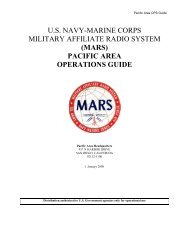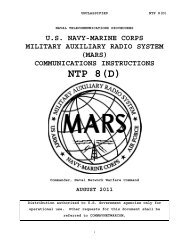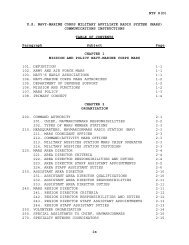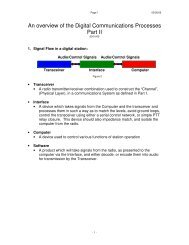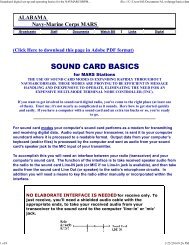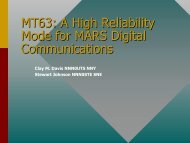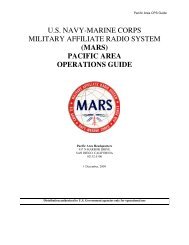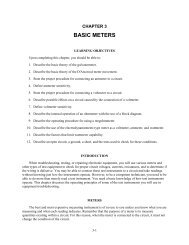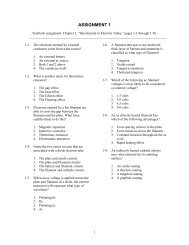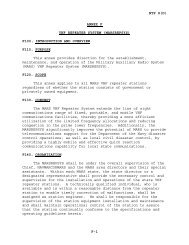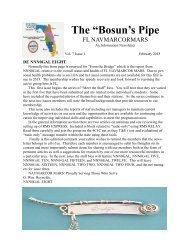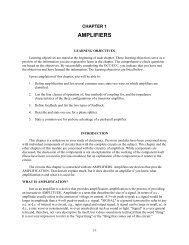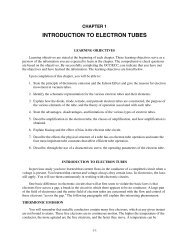The “Bosun's Pipe - Navy-Marine Corps MARS
The “Bosun's Pipe - Navy-Marine Corps MARS
The “Bosun's Pipe - Navy-Marine Corps MARS
You also want an ePaper? Increase the reach of your titles
YUMPU automatically turns print PDFs into web optimized ePapers that Google loves.
MT-63Ref (A): FL BCST 10.08(B): FL NewslettersOn 30 July 2008, Ref (A) was promulgated stating that effective 15 August 2008MT-63 would become the primary mode for SCD traffic distribution on the FLNAVMARCOR<strong>MARS</strong> nets. This BCST makes the process of connecting your stationcomputer through a sound card interface to your station transceiver for copyingand sending SCD traffic in this mode a priority for all members.MT-63 Technical DescriptionMT63 is intended for conversational use between one of more Amateur Radiostations, providing good performance under poor conditions, and consequently utilizesFEC rather than ARQ error correction processes. <strong>The</strong> MT63 modem, constructedaround a high speed DSP processor, either in a dedicated external DSP unitlike the Motorola EVM, or in PC software using the PC sound card, transmits 64tones spaced 15.625 Hz apart, in the 1 kHz bandwidth. <strong>The</strong> base-band signal occupiesfrom 500 Hz to 1500 Hz. All 64 tones are differential bipolar phase shift keyedat 10 baud. Since the Walsh FEC code is 64 bit, the character rate is the same as thesymbol rate, so the throughput with FEC is ten 7-bit ASCII characters/sec (about100 WPM). <strong>The</strong> following diagram (courtesy of Eduardo EA2BAJ) illustrates the 1kHz wide MT63 spectrum:MT63 Power Spectrum<strong>The</strong>re are two other bandwidths that can be used, 500 Hz, and 2 kHz, where thetone spacing and baud rate are halved or doubled, and the throughput halves or doublesrespectively. Unless otherwise indicated, this description is of the default 1 kHzversion.In addition, an optional doubling of the interleave period improves the temporal



